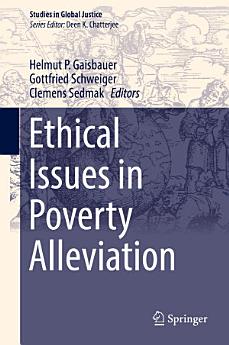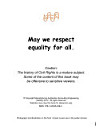Ethical Issues in Poverty Alleviation
આ ઇ-પુસ્તક વિશે
Judith Lichtenberg
Department of Philosophy
Georgetown University
This collection of essays is most welcome addition to the burgeoning treatments of poverty and inequality. What is most novel about this volume is its sustained and informed attention to the explicitly ethical aspects of poverty and poverty alleviation. What are the ethical merits and demerits of income poverty, multidimensional-capability poverty, and poverty as nonrecognition? How important is poverty alleviation in comparison to environmental protection and cultural preservation? Who or what should be agents responsible for reducing poverty? The editors concede that their volume is not the last word on these matters. But, these essays, eschewing value neutrality and a retreat into technical mastery, challenge us to find fresh and reasonable answers to these urgent questions.
David A. Crocker
School of Public Policy
University of Maryland
લેખક વિશે
Helmut P. Gaisbauer is Senior Scientist at the Centre for Ethics and Poverty Research, University of Salzburg. Recent publications include: (with Gottfried Schweiger & Clemens Sedmak) Philosophical Explorations of Justice and Taxation. Dordrecht: Springer 2015; (with Clemens Sedmak) Neglected Futures. Considering Overlooked Poverty in Europe; in: Special Issue of European Journal of Futures Research: The Future of Europe 2014, 2–8.
Gottfried Schweiger is Senior Scientist at the Centre for Ethics and Poverty Research, University of Salzburg and there the Principal Investigator of a research project “Social Justice and Child Poverty”, funded by the Austrian Science Fund (FWF). Recent publications include: (with Gunter Graf) The Subjective Experience of Poverty, in: Northern European Journal of Philosophy 15 (2) 2015, 148–67; (with Gunter Graf). A Philosophical Exploration of Social Justice and Child Poverty. Basingstoke: Palgrave Macmillan 2015.
Clemens Sedmak is FD Maurice Professor of Moral and Social Theology, King’s College London and Associate Director of the Centre for Ethics and Poverty Research, University of Salzburg. Recent publications include: (ed. with Elisabeth Kapferer & Andreas Koch) Strengthening Intangible Infrastructures. Newcastle upon Tyne: Cambridge Scholars Publishing 2014; Sustainability: Ethical Perspectives, in: C. Weidinger et al. (eds.): Sustainable Entrepreneurship, CSR, Sustainability, Ethics & Governance. Berlin-Heidelberg: Springer 2014, 51–65.










